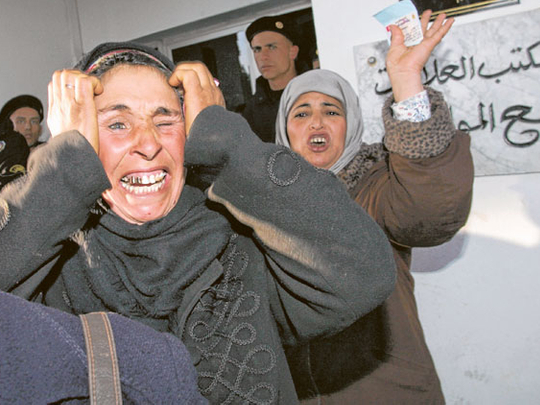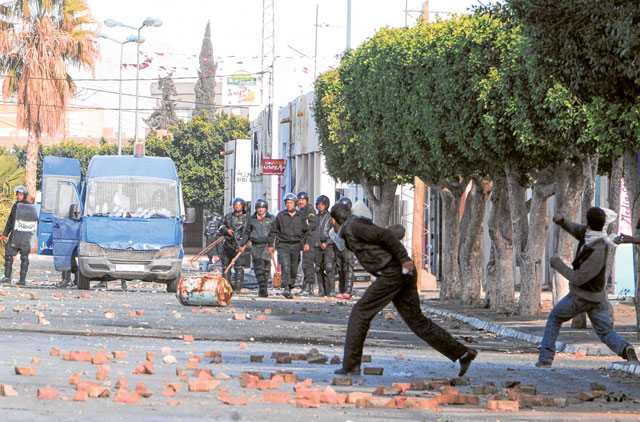
Tunis: Tunisia's government ordered the indefinite closure of all schools and universities on Monday in an attempt to stamp out clashes with police which killed at least 50 civilians so far.
Facing the worst unrest for decades, the government deployed the military onto the streets in the worst-hit areas late on Sunday and that appeared to have had an effect, with fewer clashes and no new deaths reported.
But witnesses in two provincial towns said police fired into the air to disperse crowds after funeral processions for people killed in clashes with police in the past two days turned into angry confrontations.
In New York, the United Nations said Secretary-General Ban Ki-moon was concerned about the escalation of violence and called for restraint. The European Union, Tunisia's biggest trade partner, said it deplored the loss of life.
Tunisian officials say police fired in self-defence after being attacked by extremists armed with petrol bombs and sticks bent on destruction. Those taking part in the clashes say they are protesting about a lack of jobs.
President Zine Al Abidine Ben Ali, who has been in office since 1987, sounded a defiant note in a televised address, saying the rioting was a "terrorist act" orchestrated by foreign parties trying to damage Tunisia.
Escalation of riots
Students were among those taking part in the riots and on Monday and riot police surrounded a university campus to stop hundreds of students who were trying to protest in the street outside.
Most of the unrest has so far been limited to provincial towns, with the Mediterranean port city of Tunis largely unaffected. "Following violence in universities and lycees ... we have decided to stop all the lessons in all educational establishments," the official TAP news agency quoted the Education Ministry as saying. In his television address, Ben Ali said urgent measures would be taken to create more jobs — a major grievance behind the riots — but violence would not be tolerated.
"The events were the work of masked gangs that attacked government buildings at night and even civilians inside their homes in a terrorist act that cannot be overlooked," he said.
"The events are being managed by foreign parties that do not want what is good for the country ... Justice has taken its course to investigate the circumstances of the events and determine responsibility."
A statement from the UN chief's office said he was concerned about the escalation of violence.
"The Secretary-General calls for restraint and urges all parties to seek to resolve differences through dialogue. He underscores the importance of full respect for freedom of expression," it said.
Local people said there was rioting in Bizerte, a town on the Mediterranean coast that throngs with tourists in the summer. It was the first case of unrest reaching Tunisia's more prosperous coastal holiday resorts.
Several hundred youths damaged a labour exchange, set fire to a bank and burned several vehicles including a police car, four witnesses said.
Renewed confrontation
In the inland provincial towns that were the scene of many of the deaths at the weekend, there was renewed confrontation though not on the scale of previous days, witnesses said.
In the town of Gassrine, about 200 kilometres southwest of the capital, a witness said a funeral procession for civilians killed at the weekend turned into a confrontation. "Police opened fire into the air," Mohammad Ali Nasri said by telephone from the scene.
Do you think this is the right move? What more can be done to ease unrest in Tunisia?













